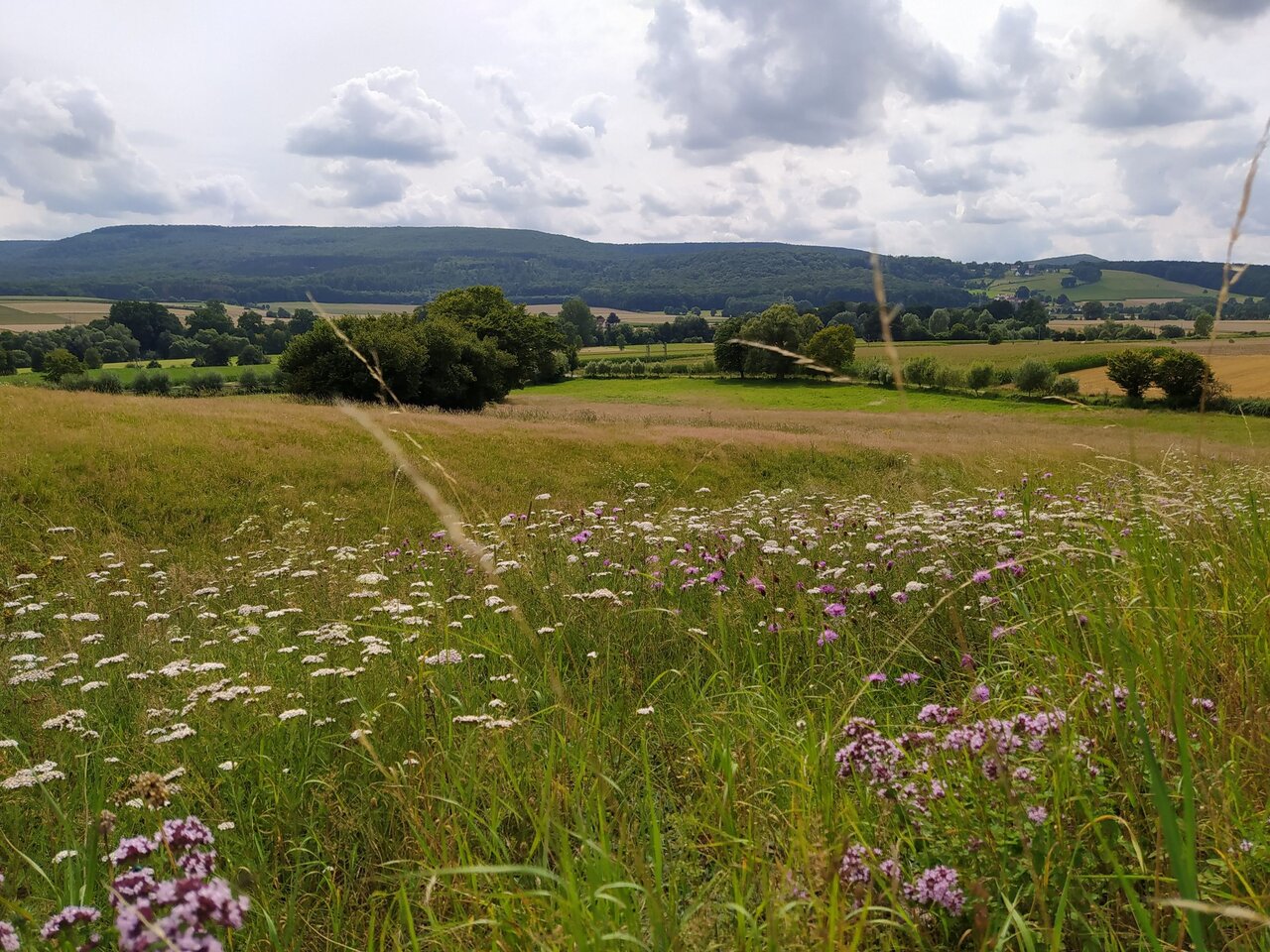Project
AGROECOLOGY

European Partnership on accelerating farming systems transition – agroecology living labs and research infrastructures
Agroecology is considered as an important approach to develop the transition to sustainable agriculture and food systems. Agroecology is based on natural, biological interactions and integrates cutting-edge science, technology and innovation, incorporating the knowledge of stakeholders in the agricultural and food systems. In January 2024, the new European partnership “European partnership on accelerating farming systems transition – agroecology living labs and research infrastructures – AGROECOLOGY” was launched to promote a transition to more sustainability, resilience, environmental and climate friendliness in the agriculture and food industry.
Background and Objective
In order to ensure food security despite the growing problems associated with climate change, the loss of biodiversity and declining soil quality, new concepts for food production are needed. In recent years, the concept of agroecology has become increasingly recognised in the scientific, agricultural and political spheres. The Horizon Europe partnership AGROECOLOGY brings together over 70 partner institutions across 26 EU Member States, Associated Countries, and Third Countries to advance the transition of existing farming systems towards greater sustainability and resilience.
The common goal of the Partnership is to promote sustainable, resource-efficient and climate-friendly agriculture under the term agroecology. The Partnership relies on an interdisciplinary scientific approach to agricultural, environmental and social sciences. In the long term, it envisions far-reaching changes in agricultural practices, value chains and business models to provide farmers with market opportunities while providing food to consumers.
The partnership is coordinated by Project Management Jülich (PtJ). From Germany, the Federal Ministry of Food and Agriculture (BMEL) and the Federal Ministry of Education and Research (BMBF) are actively involved by supporting transnational research projects that are intended to advance the national transformation to agroecology. The Thünen Institute, the Leibniz Centre for Agricultural Landscape Research, the Research Institute for Farm Animal Biology and the German Biomass Research Centre are involved from the scientific community in Germany.
The Thünen Institute is co-leading the participatory research to strengthen and integrate living labs and research infrastructures in agroecology (work package 7) and is strongly involved in the development and operationalisation of a framework for monitoring and evaluating agroecological transition (work package 5). In addition, the Thünen Institute contributes to capacity building for researchers and policy makers to strengthen dialogue and awareness on policy issues related to the transition to agroecology (work package 2).
Approach
The AGROECOLOGY partnership relies on a common vision whereby a broad stakeholder constellation teams up to unlock the transition to agroecology so that farming systems are made resilient, productive and prosperous, place-sensitive, as well as climate-, environment-, ecosystem-, biodiversity- and people-friendly by 2050.
It is based on the concept that we can address the challenges faced by the European agricultural sector through agroecology by bringing together farmers, researchers, and other relevant stakeholders to co-develop, test and monitor new practices, approaches and technologies in real-life contexts. Such a framework is typically adopted in living labs. The partnership will develop networks of living labs and research infrastructures to allow experimentation between practice and science at different levels in order to develop and enhance the concrete and place-based implementation of innovations. This approach will also provide knowledge- and evidence-based information about how to assess the potential performance and impacts of agroecological practices in both the short and the long-term.
Further information about the project is available on our project website: https://www.agroecologypartnership.eu/
The Strategic Research and Innovation Agenda is available at: https://www.agroecologypartnership.eu/s/SRIA_rev23-02-2023.pdf
The project is funded by the European Union's Horizon Europe Framework Programme for Research and Innovation under grant agreement No. 101132349.
Thünen-Contact

Involved Thünen-Partners
Involved external Thünen-Partners
- Forschungszentrum Jülich
(Jülich, Deutschland) -
Université de Liège
(Liège, Belgien) -
FiBL Europe - Forschungsinstitut für Biologischen Landbau in Europa
(Brüssel, Belgien) - Aarhus University
(Aarhus, Tjele, Dänemark) - Institut national de recherche pour l’agriculture, l’alimentation et l’environnement (INRAE)
(Paris, Toulouse, Montpellier, Avignon, Ivry-sur-Seine, Clermont-Ferrand, Rennes, Thiverval-Grignon, Dijon, Orleans, Bordeaux, Pierroton, Frankreich) - Centre National de la Recherche Scientifique (CNRS)
(Paris, Rennes, Montpellier, Frankreich) - Deutsches Biomasseforschungszentrum (DBFZ)
(Leipzig, Deutschland) -
ÖMKi Hungarian Research Institute of Organic Agriculture
(Budapest, Ungarn) - CIRAD (Centre de Recherche Agronomique pour le Développement, Agricultural Research Centre for International Development)
(Montpellier, Frankreich) - Agencia Estatal Consejo Superior de Investigaciones Científicas (CSIC)
(Madrid, Cordoba, Spanien) - French National Research Agency (Agence Nationale de la Recherche) (ANR)
(Paris, Frankreich) -
HBLFA Francisco Josephinum (Höhere Bundeslehr- und Forschungsanstalt für Landwirtschaft, Landtechnik und Lebensmitteltechnologie)
(Wieselburg, Österreich) - Natural Resources Institute Finland (LUKE)
(Helsinki, Mikkeli, Jokioinen, Vanda, Finnland) - Benaki Phytopathological Institute (BPI)
(Kifisia, Griechenland) - CREA, Consiglio per la Ricerca in Agricoltura e l'Analisi dell'Economia Agraria
(Rom, Italien) -
National Institute for Agrarian and Veterinary Research, I.P. (INIAV)
(Oeiras, Portugal) - Institute of Field and Vegetable Crops (IFVCNS)
(Novi Sad, Serbien) -
National Forest Centre, Forest Research Institute
(Zvolen, Slowakei) - Life Watch ERIC (e-Science European infrastructure for biodiversity and ecosystem research)
(Sevilla, Spanien) - Leibniz-Zentrum für Agrarlandschaftsforschung (ZALF) e.V.
(Müncheberg, Deutschland) - Wageningen University & Research (WUR)
(Wageningen, Niederlande) -
Agroscope
(Reckenholz, Schweiz)
Funding Body
-
European Union (EU)
(international, öffentlich)
Duration
1.2024 - 12.2030
More Information
Project funding number: 101132349
Funding program: EU - Horizon Europe
Project status:
ongoing
Publications to the project
- 0
Stone TF, Alami S, Løvlund Bach J, Bindelle J, Busse M, Ciaccia C, Rivera-Ferre MG, López-García D, Kozar R, Plaas E, Ramos-García M, Schwarz G, Thorsøe MH, Rødel Berg T (2025) Agroecology Living Labs to transform food systems : a critical review at the science-policy-society nexus in Europe. Agroecol Sustain Food Syst: Online First, Sep 2025, DOI:10.1080/21683565.2025.2560915
- 1
Gava O, Vanni F, Schwarz G, Guisepelli E, Vincent A, Prazan J, Weisshaidinger R, Frick R, Hrabalová A, Carolus JF, Iragui Yoldi U, Pyysiäinen J, Smyrniotopoulou A, Vlahos G, Balazs K, Szilágyi AJ, Jegelevicius G, Miksyte E, Zilans A, Fratila M, et al (2025) Governance networks for agroecology transitions in rural Europe. J Rural Studies 114:103482, DOI:10.1016/j.jrurstud.2024.103482
- 2
Fernández-Soleto P, Gutiérrez-Briceño I, Márquez-Barrenechea A, Pérez-Ramírez I, Yacamán-Ochoa C, Lucantoni D, Vizuete B, Hevia V, González JA, Schwarz G, García-Llorente M (2025) Identifying and addressing farmers' perceived barriers for the agroecological transition in the Madrid region. In: European Partnership AGROECOLOGY Symposium : Exploring methods for researching shifts in knowledge production for agroecology transition ; Book of abstracts ; November 20 - 21, 2024. pp 28-29
- 3
Gutiérrez-Briceño I, Pérez-Ramírez I, Yacamán-Ochoa C, Lucantoni D, Vizuete B, Hevia V, González JA, Schwarz G, García-Llorente M (2025) Unravelling agroecological transitions : a multidimensional study of the horticultural sector in Madrid. Int J Agric Sustain 23(1):2551423, DOI:10.1080/14735903.2025.2551423
- 4
Miller D, Schwarz G (2024) Developing visions for rural areas through science, society and policy interfaces. In: Leibniz Centre for Agricultural Landscape Research (ed) LANDSCAPE 2024: Agroecosystems in transformation: Visions, technologies and actors; Book of abstracts. pp 169-170
- 5
McPhee C, Schwarz G (2024) Living Lab Networks for the transformation of agroecosystems: Network characteristics and policy implications. In: Leibniz Centre for Agricultural Landscape Research (ed) LANDSCAPE 2024: Agroecosystems in transformation: Visions, technologies and actors; Book of abstracts. p 118
- 6
McPhee C, Schwarz G (2024) Living labs for innovation in agriculture : where does the approach go from here? J Innov Manag 12(4):X-XXI, DOI:10.24840/2183-0606_012.004_L002






